


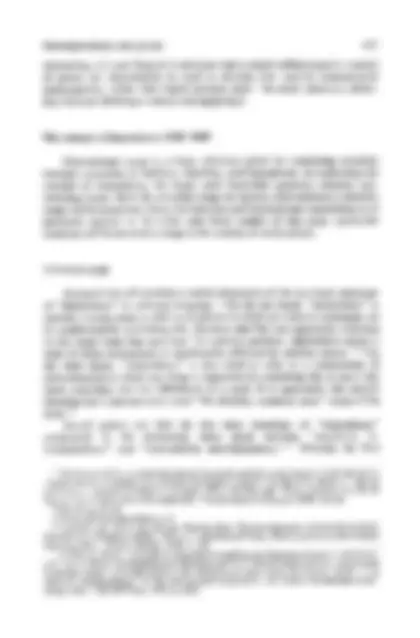
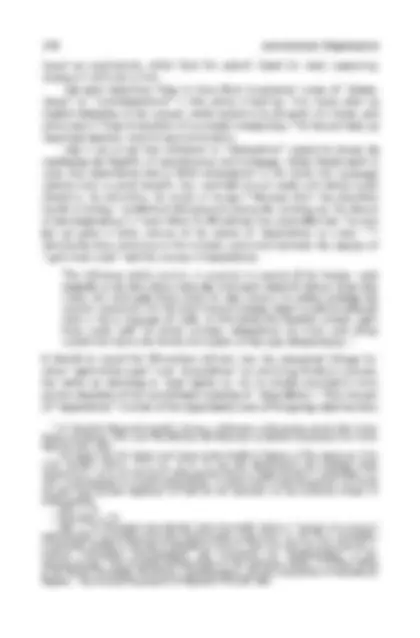

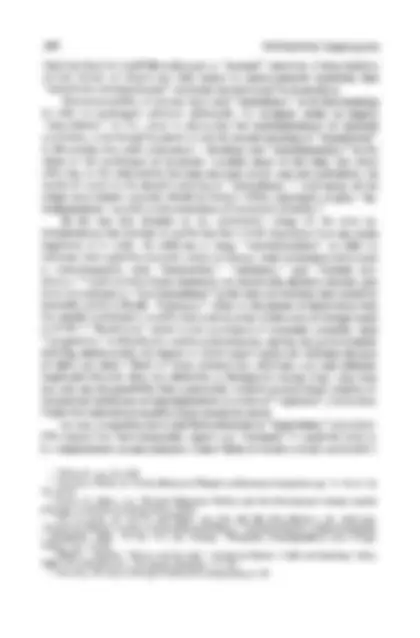
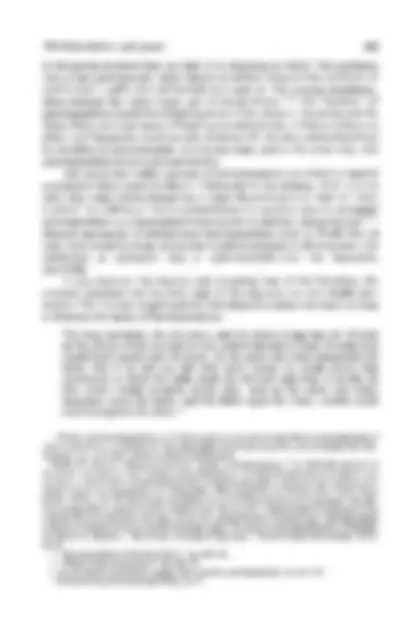
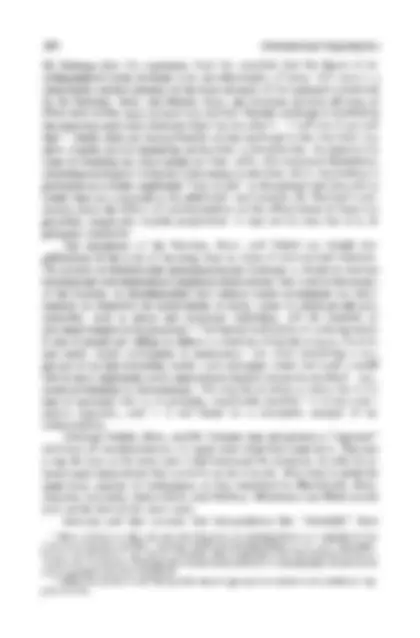

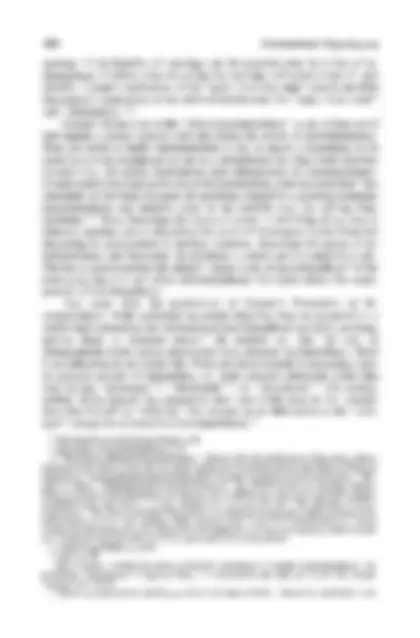
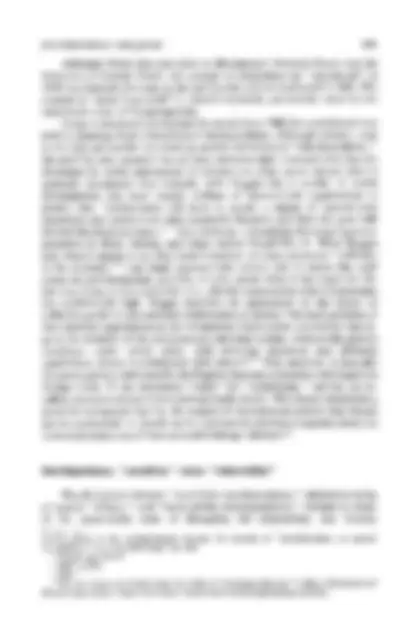
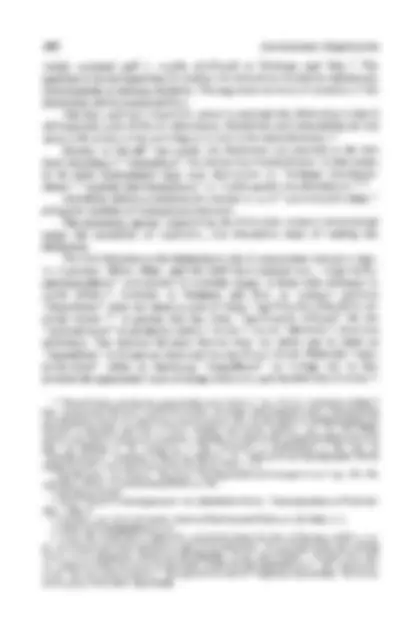
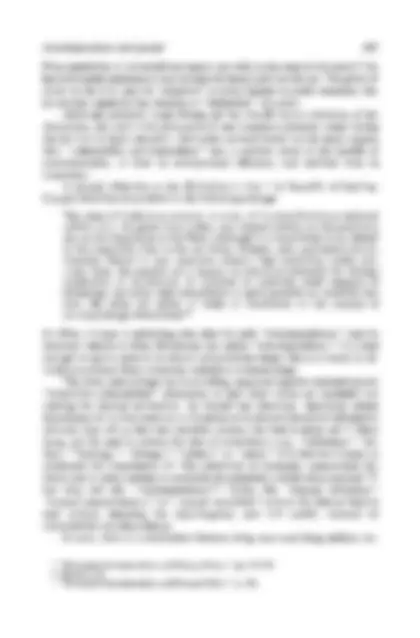
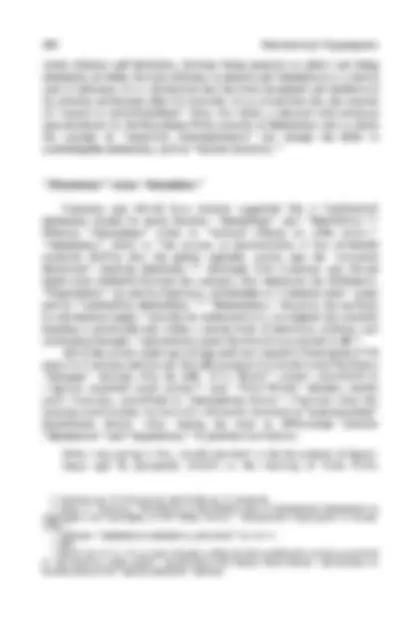

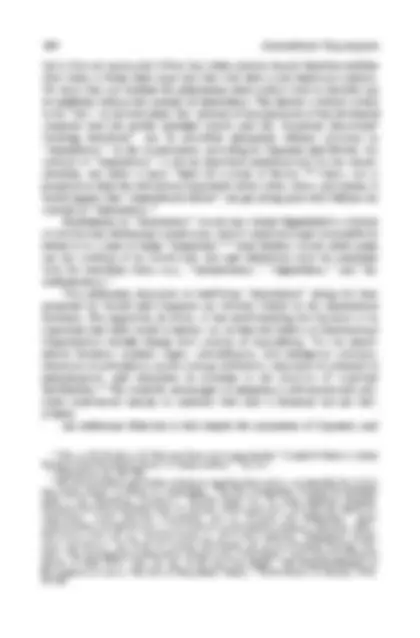
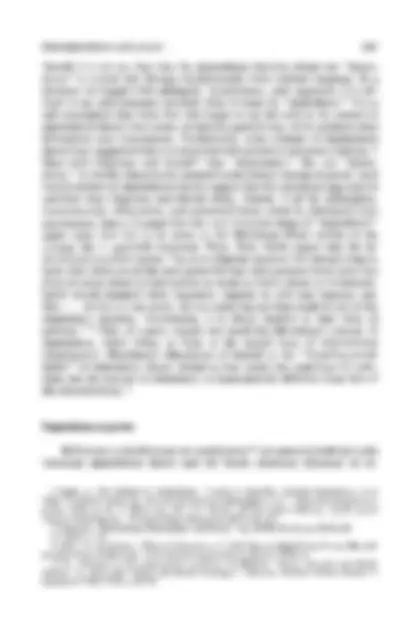
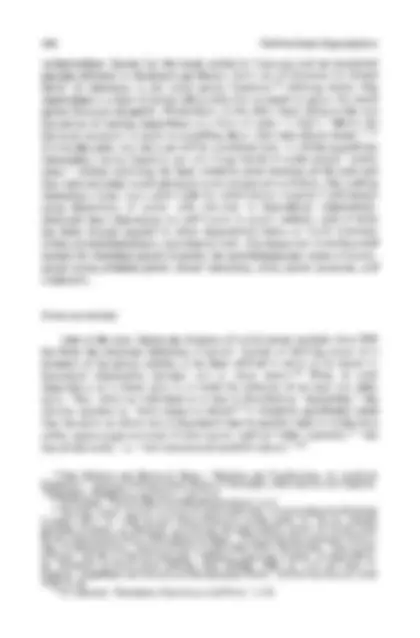

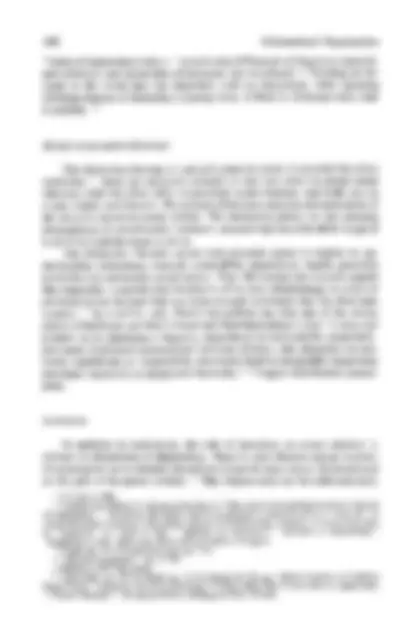
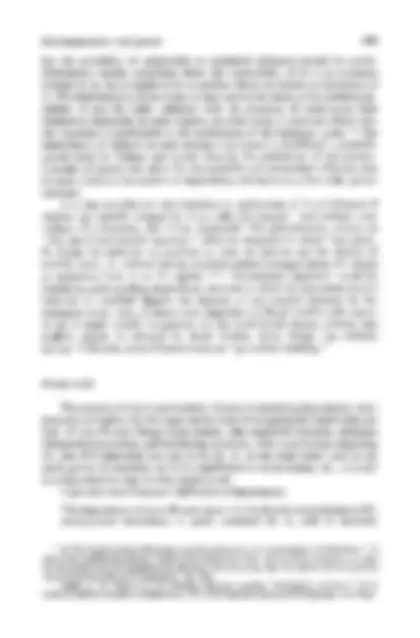
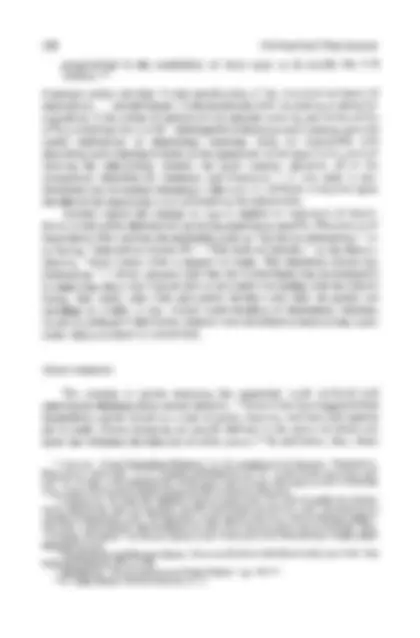
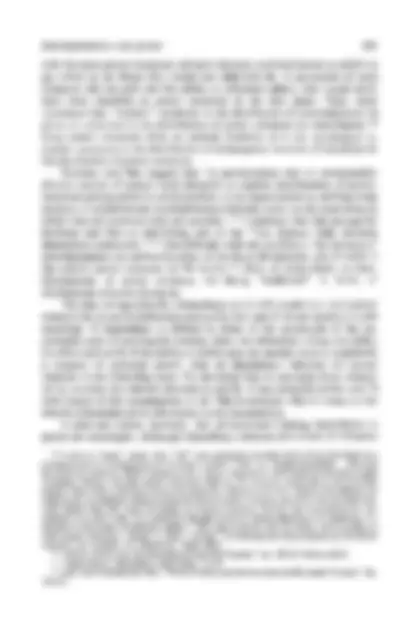

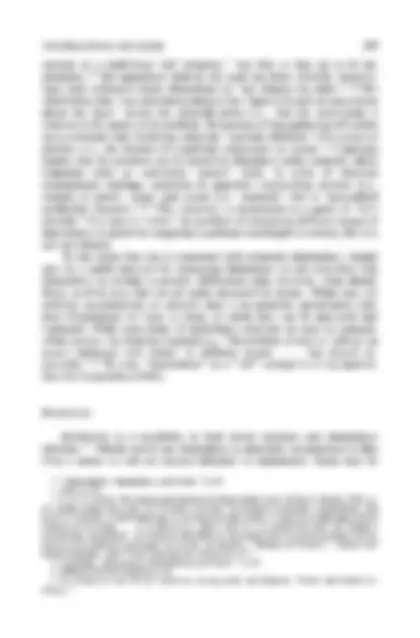
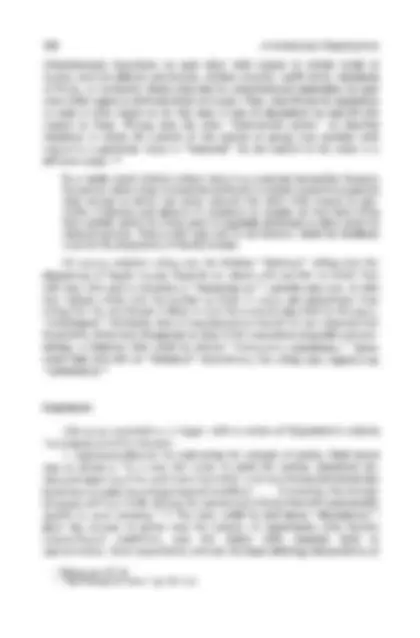

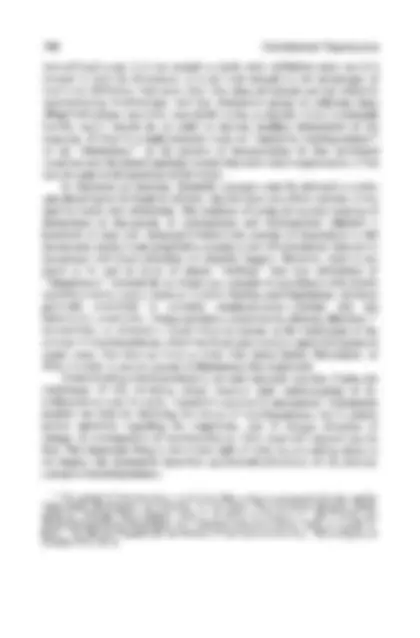


Study with the several resources on Docsity

Earn points by helping other students or get them with a premium plan


Prepare for your exams
Study with the several resources on Docsity

Earn points to download
Earn points by helping other students or get them with a premium plan
Community
Ask the community for help and clear up your study doubts
Discover the best universities in your country according to Docsity users
Free resources
Download our free guides on studying techniques, anxiety management strategies, and thesis advice from Docsity tutors
A literature review on the concepts of dependence and power in international relations. The author examines the usage of these concepts in various academic works, from the 1930s to the 1980s, and discusses the relationship between them. The essay also touches upon the multidimensional nature of power and the relational definition of power.
Typology: Study notes
1 / 36

This page cannot be seen from the preview
Don't miss anything!





























David A. Baldwin
Priorityin the use of a novel meaningof a term is no cause for pride;in fact it betraysa lack of "terminologicaldiscipline" and a want of lin- guisticinventiveness-for when a writercreatesor modifies a concepthe ought also to coin a new word to denote it, rather than corrupt the languageand spreadconfusion.' The concept of dependence-mutual or otherwise-in world politics has stimulateda lively scholarlycontroversyduringthe last decade. Some view it as helpful in explainingthe distributionof power in the world,2while others condemnit as an "unhelpful"and "misleading"analyticalcategory.3Many scholarscomplainabout the lack of conceptualclarity,4and some even deny
An earlier version of this paper was delivered at the Eleventh World Congress of the Interna- tional Political Science Association, Moscow, U.S.S.R., 12-18 August 1979. The author would like to express his appreciation for the helpful comments provided by Michael Banks, Richard Joseph, Robert 0. Keohane, Nancy Marion, Roger Masters, Felix Oppenheim, Robert Packenham, James Rosenau, Bernard Segal, and Oran Young. I Fritz Machlup, Essays on Economic Semantics (Englewood Cliffs, N.J.: Prentice-Hall, 1963), p. 12. 2 Robert 0. Keohane and Joseph S. Nye, "World Politics and the International Economic System," in The Future of the International Economic System, ed. C. Fred Bergsten (Lexington, Mass.: Lexington Books, 1973), pp. 121-25; Robert 0. Keohane and Joseph S. Nye, Power and Interdependence: World Politics in Transition (Boston: Little, Brown, 1977), pp. 3-19. 3 Sanjaya Lall, "Is 'Dependence' a Useful Concept in Analysing Underdevelopment?" World Development 3 (November 1975): 808. 4 Richard Rosecrance and Arthur Stein, "Interdependence: Myth or Reality?" World Politics 26 (October 1973): 2; Richard Rosecrance et al., "Whither Interdependence?" International Organization 31 (Summer 1977): 425-26; James A. Caporaso, "Dependence, Dependency, and Power in the Global System: A Structural and Behavioral Analysis," International Organization
International Organization 34,4, Autumn 1980 0020-8183/80/0004-0471 $01. ? (^) 1980 by the Board of Regents of the University of Wisconsin System
471
472 InternationalOrganization
that thereis any generallyaccepteddefinitionof the term. 5 The purposeof this essay is to examine the concept of dependence, to clarify it through ex- plication,to considerrecentconceptualdistinctionsin analyticaland historical perspective,and to address the question of whether "dependence"can be treatedas part of a largerfamily of social scienceconceptssometimescalled "powerterms." It is importantto be clear as to what this essay is about, but it is equally important to understandwhat it is not about. It does not offer empirical observationsas to whether dependenceor interdependenceis increasingor decreasing.It does not offer normativeobservationsas to whetherdependence or interdependenceis "good" or "bad." And it is not an attempt either to refute or to understanddependenciatheoryas recentlyformulatedby certain LatinAmericanscholars.
Conceptualanalysis:orderor anarchy?
This essay is an exercisein conceptualanalysis.It is an attemptto clarify and explicatethe concept of dependenceand relatedconcepts, such as "in- terdependence"and "dependency."It offers no new definition, no theoryof interdependence,and no new technique of measurement.I am aware that some would deny the worth of such an undertakingand dismissit as "mere semantics"or "pure logomachy."The advancementof knowledge,however, dependson the abilityof scholarsto communicatewith one another;and clear conceptsseem to help. If one is to theorizeabout interdependenceor attempt to measureit, the essentialfirst step is a clearconceptualizationof the nature of interdependence.As Felix Oppenheimhas argued, "the elucidationof the languageof politicalscienceis by no meansan idle exercisein semantics,but in many instancesa most effectiveway to solve substantiveproblemsof political research."^7
32 (Winter 1978): 13 ff; Robert Solomon with Anne Gault, The Interdependence of Nations: An Agenda for Research, A Report to the National Science Foundation (December 1977), p. 6; and Robert 0. Keohane and Joseph S. Nye, Jr., "International Interdependence and Integration," in Handbook of Political Science, eds. Fred I. Greenstein and Nelson W. Polsby (Reading, Mass.: Addison-Wesley, 1975), Vol. 8: International Politics, p. 368. 5 Hayward R. Alker, Jr., Lincoln P. Bloomfield, and Nazli Choucri, Analyzing Global In- terdependence, 4 vols. (Cambridge, Mass.: Center for International Studies, M.I.T., 1974), vol. 1: A nalytical Perspectives and Policy Implications, p. 2. 6 For discussions primarily concerned with understanding Latin American usage, see Caporaso, pp. 13-43; Raymond D. Duvall, "Dependence and Dependencia Theory: Notes Toward Precision of Concept and Argument," International Organization 32 (Winter 1978): 51-78; and C. Richard Bath and Dilmus D. James, "Dependency Analysis of Latin America: Some Criticisms, Some Suggestions," Latin American Research Review 11 (Fall, 1976): 3-54. ' Felix E. Oppenheim, "The Language of Political Inquiry: Problems of Clarification," in Handbook of Political Science, ed. Fred I. Greenstein and Nelson W. Polsby (Reading, Mass.: Addison-Wesley, 1975), vol. 1: Political Science: Scope and Theory, p. 284. See also Machlup, pp. 3-6.
474 InternationalOrganization
cepts should be operationalin the broadestsense, althoughthis should not be interpretedas requiringquantification.Second:Conceptsthat establishdefini- tional connectionswith other termsare to be preferred.Third:Conceptsthat draw attention to theoreticallyimportantaspects of the subject matter that might easily be overlooked are desirable.Fourth: Concepts should not pre- clude empiricalinvestigationby makingtrue "by definition" what had better be left open to empiricalinquiry.Fifth: Conceptsshould remainreasonably close to ordinary language. "Ordinary language," however, does not necessarilymean the way most people would define the term, but ratherthe "set of rules they implicitlyfollow when applying it to a given situation." Sixth: The meaning of concepts should be "open" in the sense that the possibilityof changeis nevercompletelyruledout. The various criteria suggested by Malthus and Oppenheim will be discussedlater with referenceto recentscholarlytreatmentsof dependence.' For now it suffices to point out that Machlup,Malthus, and Oppenheimall agree that, ceterisparibus, deviations from common usage are undesirable characteristicsin scientificconcepts and that such deviationscall for careful explanation and justification. Special care in discussing the nature and methods of conceptual analysis prior to examining the concept of in- terdependenceis in order because much of the recent scholarlywork on in- ternationaland transnationaldependencefails to satisfythe criteriaarticulated by eitherMalthusor Oppenheim. What follows is an explicationof the concept of dependencein its most general and fundamentalsense. It should be noted at the outset that some would denythat explicationof a genericconceptof dependenceservesa useful analytic purpose.'5Since the argumentsfor and against this position were cogentlystatedin RobertDahl's classicarticleon "The Conceptof Power,"' thereis no need to repeatthem here. Dahl soughtto capturethe basic intuitive notion of powerin the samesensethat this essaywill pursuethe basic intuitive notion of dependencethat underliesdiscussionsof dependence,dependency, interdependence,or independence.Thus, referencesto concepts of depen- dence in the following discussionare meant to apply, mutatis mutandis, to theserelatedtermsas well. To favor the elucidationof general abstractconcepts of power or depen- dence, however, does not commit one to the view that discussionsof actual power or dependencerelations should be carried on at very high levels of
(^14) In view of recent suggestions by Caporaso and Duvall that a clear distinction be drawn be- tween the concepts of dependence and dependency, it should be noted that such a distinction is not employed in this essay for reasons that will be explained later. Unless otherwise indicated, treatments of dependence, independence, interdependence, autonomy, and dependency are regarded as falling within the same general field of inquiry. As used here, the term "interdependence" always refers to "mutual dependence." 15 Caporaso, p. 18; Edward L. Morse, "Transnational Economic Processes,"^ International Organization 25 (Summer 1971): 382; Fernando Henrique Cardoso and Enzo Faletto, Dependency and Development in Latin America (Berkeley: University of California Press, 1979), pp. xii-xiii. 16 Robert A. Dahl, "The Concept of Power," Behavioral Science 2 (July 1957): 201-15, esp. p.
Interdependenceand power 475
abstraction.It is not illogicalto advocatethat^ a clearlydefinedgenericconcept of power (or dependence)be used to develop low- and/or medium-level generalizationsratherthan highly abstractones.'7^ In short, there^ is a differ- encebetweendefininga conceptand^ applyingit.
The conceptof dependence:1568-
Conventionalusage is a basic referencepoint for evaluatingscientific conceptsaccordingto Malthus,Machlup,and Oppenheim.In explicatingthe concept of dependence, the single most important^ question concerns^ con- ventionalusage. Both the everydayusage^ by laymenand traditionalscholarly usagewill be examined.Sinceinternationaland^ transnationaldependenceis of particularinterest to the writer^ and likely readers^ of this essay, particular attentionwill be devotedto usagein the^ contextof worldaffairs.
Commonusage
RaymondDuvall providesa useful discussionof the two basic^ meanings of "dependence"in ordinarylanguage.'8On the one hand, "dependence"is used in a causalsense to referto situationsin which^ an effect is contingenton or conditionedby somethingelse. Keohaneand Nye are apparentlyreferring to this usage when they note that "in commonparlance,dependencemeansa state of being determinedor significantlyaffected by externalforces."'9^ On the other hand, "dependence" is also used to refer to a relationshipof subordinationin which one thing is supportedby somethingelse or must^ rely upon somethingelse for fulfillment^ of a need. It is apparentlythis second meaningthat Caporasorefersto as "the^ familiar,commonsense"usageof the term. 20 Duvall points out that the two basic meanings of^ "dependence" correspond to the^ distinction often^ made^ between^ "sensitivity in- terdependence"and "vulnerabilityinterdependence."2'^ Whereas the first
(^17) The arguments for a contextual approach to power analysis consist largely of spelling out the implications of the absence of a political counterpart to money. See David A. Baldwin, "Money and Power," Journal of Politics 33 (August 1971): 578-614; and "Power Analysis and World Politics: New Trends versus Old Tendencies," WorldPolitics 31 (January 1979): 161-94. 18 Duvall, pp. 61-68. (^19) Power and Interdependence, p. 8. (^20) Caporaso, pp. 18-19, 24. See also, Ramsay Muir, The Interdependent World and Its Prob- lems (Boston: Houghton Mifflin, 1933), p. 1; and Kenneth Waltz, Theory of International Politics (Reading, Mass.: Addison-Wesley, 1979), p. 143. 21 Duvall, pp. 62-63. Although it is customary to attribute the distinction between "sensitivity" and "vulnerability" interdependence to Keohane and Nye ["World Politics and the International Economic System"] the distinction is also found in an earlier article by Kenneth Waltz ["The Myth of Interdependence" in The International Corporation, ed. Charles Kindleberger (Cam- bridge, Mass.: The MIT Press, 1970), p. 210.]
Interdependenceand power 477
sitivity interdependence"implies nothing about the cost of altering the relationship.24Thus, if one finds a relationshipor its effects referredto as "necessary,""ineluctable,""inevitable,""inextricable,"or "unavoidable," it is grounds for suspicion that the author has in mind a relationshipthat would be costly to break. Likewise, if terms such as "need," "compel," "must," "constraint," or "Hobson's choice" are used to describe the relationship,it seemsfair to inferthat the secondmeaningof "dependence"is the relevantone. If "dependence"is used^ with^ referenceto "self-sufficiency," "autarky," or the ability of one actor to "do without" another, the op- portunitycosts of foregoingthe relationshipwould^ seem^ to be the underlying concern.
Scholarlyusage:economists
In 1972 Richard Cooper asserted that " 'economic interdependence' normallyrefersto the dollarvalue of economictransactionsamongregionsor countries,eitherin absoluteterms, or relativeto their total transactions."He distinguishedthis "normal usage" from his more restrictedconcept of "the sensitivityof economictransactionsbetweentwo or more nationsto economic developmentswithinthose nations."25In 1973Tollisonand^ Willettreferredto Cooper'ssensitivityconceptas representing"normalusageby economists." Withoutdisputingthe rapidprogressof the disciplineof economics,^ "normal usage" would appearto changewith^ remarkablespeed. In 1979Marinav. N. Whitmanreiteratedthe assertionof Tollison and Willett that "as generally understoodby economists,the^ terminterdependencerefersto the^ sensitivityof economic behavior in one country to developmentsor policies originating outside its own borders."27If such referencesare taken to mean that many economists think of interdependencein terms of the mutual sensitivityof economic variables,they can be supportedwith evidence. If, however, such referencesare interpretedto mean that economists since the time of Adam Smith have characteristicallyfavored the first meaning of "dependence,"
(^24) "Costs" in this essay always refer to "opportunity costs." Although dependency may be defined in terms of the costs of "breaking" a relationship, it can also refer to alterations in the relationship short of total severance. This point is of little consequence for the argument in this essay, however; and the terms "breaking," "altering," "severing," and "foregoing" will be used interchangeably. (^25) Richard N. Cooper, "Economic Interdependence and Foreign Policy in the Seventies," WorldPolitics 24 (January 1972): 159. 26 Robert D. Tollison and Thomas D. Willett, "International Integration and the In- terdependence of Economic Variables," International Organization 27 (Spring 1973): 259. This article not only asserts a view of "normal usage" that differs from Cooper's view of "normal usage," it even cites Cooper's article in support of this contention. 27 Marina v. N. Whitman, Reflections of Interdependence: Issues for Economic^ Theory and U.S. Policy (Pittsburgh: University of Pittsburgh Press, 1979), p. 265. Also in 1979, Kenneth Waltz concluded that "sensitivity interdependence" was "essentially an economist's definition." [Theory of International Politics, p. 139.]
478 International Organization
based on contingency, rather than the second, based on need, supporting evidenceis difficultto find. The most importantthing to note about economists' usage of "depen- dence" or "interdependence"is that clarityis lacking. They rarelyoffer an explicitdefinitionof the concept, rarelyincludeit in the index of a book, and often omit it from dictionariesof economicterminology. 28 It has not been an importantanalytictermfor most economists. This is not to say that referencesto "dependence"cannot be found. In explainingthe benefits of specializationand exchange,Adam Smith made it clear that dependencywas a likely consequencein the sense that exchange relationshipsinvolved benefits that satisfied mutual needs and which would therefore, by definition, be costly to forego.29Ramsay Muir has described Smith as having "revolutionizedeconomicscienceby workingout the theory of interdependence";30and Albert0. Hirschmanhas contendedthat "no one has yet given a better picture of the nature of 'dependenceon trade.' " Hirschmandrew attentionto the intimateconnectionbetweenthe concept of "gain from trade"and the conceptof dependence: The influence which country A acquiresin country B by foreign trade dependsin the first place upon the total gain which B derivesfrom that trade; the total gain from trade for any country is indeed nothing but anotherexpressionfor the total impoverishmentwhichwould be inflicted upon it by a stoppage of trade. In this sense the classicalconcept, gain from trade, and the power concept, dependenceon trade, now being studiedare seen to be merelytwo aspectsof the samephenomenon. It should be noted that Hirschmandid not view the conceptuallinkage be- tween "gains from trade" and "dependence"as redefiningthe latterconcept, but rather as clarifyingit. And rightly so, for he simply provided a more precisestatementof the secondbasic meaningof "dependence."This concept of "dependence"in termsof the opportunitycosts of foregoingtradehas been
(^28) Cf. Harold S. Sloan and Arnold J. Zurcher, A Dictionary of Economics, 4th ed. (New York: Barnes and Noble, 1961); and The McGraw-Hill Dictionary of Modern Economics (New York: McGraw-Hill, 1965). 29 An Inquiry into the Nature and Causes of the Wealth of Nations (1776), reprint ed. (New York: Modern Library, 1937), pp. 13-16. To say that specialization and exchange create dependency is not to say that each trading partner incurs an equal amount of dependency, nor does it imply dependency on each trading partner. A country that increases its economic well-being through trade becomes dependent on trade but not necessarily on any particular product or trading partner. (^30) Muir, p. 18. (^31) Hirschman, p. 73. (^32) Ibid., p. 18. Hirschman notes that the "gain from trade" refers to "that part of a country's well-being which it is in the power of its trading partners to take away" (p. 19). Thus, vulnerability is necessarily implied by this type of dependency. Ernst B. Haas overlooks this point when he in- troduces "vulnerability interdependence" and "opportunity cost interdependence" as two separate concepts. They are simply different labels for the same basic concept. ["Is There a Hole in the Whole? Knowledge, Technology, Interdependence, and the Construction of International Regimes," International Organization 29 (Summer 1975): 861-864.]
480 InternationalOrganization
meaningdoes not establishsuch usageas "normal";however,it does justify a certain amont of skepticism with regard to undocumentedassertions that ''sensitivityinterdependence"representsnormalusageby economists. Some economists,of course,have used "dependence"in its first meaning to refer to contingent relations. Ellsworth, for example, seems to employ "dependence" in this sense in discussing the interdependenceof national currencies,even^ thoughhe seemsto use the secondmeaningof "dependence" in discussingwhy tradetakes place.3"Machlupuses "interdependence"in the sense of the covarianceof economic variablesmost of the time; but when referringto the relationshipbetweennational power and self-sufficiency,he seems to revertto the second meaningof "dependence."36And many of the essays in a volume recentlyedited (^) by RobertAliber apparentlyemploy "in- terdependence"to referto the covarianceof economicvariables. 37 In the last two decades or so, economists' usage of (^) the term in- terdependencehas become so confusingthat a brief digressionfrom my main argumentis in order. In addition to using "interdependence"to refer to relationsthat would be mutuallycostly to forego, some economistshave used it interchangeablywith "integration," "openness," and "mutual sen- sitivity."II^ Each of these termsrepresentsan analyticallydistinctconcept,and none correspondsto "interdependence"in the senseof relationsthat wouldbe mutuallycostly to break. "Openness"refersto the degreeof interactionwith the outsideworldand is usuallymeasuredin termsof the ratioof foreigntrade to GNP.39"Sensitivity"refersto the covarianceof economicvariables.And "integration,"as Machlup'scarefulexplicationhas shown, has as its essential definingcharacteristicthe degreeto which opportunitiesfor efficient division of labor are used.40Each of these concepts has different uses and different empiricalreferents;thus, it is desirableto distinguishamong them. This does not rule out the possibilitythat a particularresearchprojectmight employan operationaldefinitionof interdependencein termsof "openness";but it does implythat appropriatequalificationsshouldbe stated. In sum, economistshave paid little attentionto "dependence"as a scien- tific conceptbut have frequently-dare I say "normally"?-used the term in its commonsensesecond meaning.I have failed to locate a single economist's
Ellsworth, pp. 2-3, 318. (^36) Machlup, Essays, pp. 13-23; History of Thought on Economic Integration, pp. 15, 19-20, 29, 53, and 81. 37 Robert Z. Aliber, ed., National Monetary Policies and the International Finance System (Chicago: University of Chicago Press, 1974). 38 On this point, see Tollison and Willett, pp. 255, 259-260, 267; Marina v. N.. (^) Whitman, "Economic Openness and International Financial Flows," Journal of Money, Credit and Banking 1 (November 1969): 727-28, 745; and Cooper, "Economic Interdependence and Foreign Policy," pp. 159-60. 39 Henry C. Wallich, "Money and Growth," Journal of Money, Credit and Banking 1 (May 1969): 281; and Whitman, "Economic Openness," p. 727. 40 Machlup, History of Thought on Economic Integration, p. 18.
Interdependenceand power 481
work that explicitlyacknowledgesthe two basic meaningsof dependenceand that offers reasonsfor preferringthe first meaningin a way that would even begin to satisfy the ReverendMalthus. Indeed, conceptualanalysisseems to have gone out of style among economists-with the notable exception of Machlup.With referenceto the allegedpropensityof economiststo define in- terdependencein terms of "sensitivity," the following hypothesesmight be considered:One is more likely to find an economist using "dependence"in this sense: (1) the more recentthe reference;(2) in discussingmonetaryrela- tions ratherthan trade relations;(3) in relativelymathematicaltreatmentsof the topic; and (4) with referenceto particulareconomicvariablesratherthan with referenceto purposiveactors,suchas nation-states.
Scholarlyusage:internationalrelations
It is a peculiar fact of intellectualhistory that internationalrelations scholarswritingon interdependenceduringthe last decadehavepaidverylittle attentionto treatmentsof this topic by previousgenerationsof scholarsin the same field. Keohaneand Nye, for example, virtuallyignore scholarlytreat- ments of interdependenceprior to World War 11.41 Whateverelse one might say about the conceptof "dependence,"therecan be no doubt that scholarly concern about its role in interstaterelations (^) predates World War II. The opposed concepts of "self reliance"^ and "dependence"are basic to an un- derstanding of Machiavelli's The Prince.42 Defining dependence in terms of relianceon others,of course,impliesa lack of self-sufficiency,which, in turn, impliesthe second^ basic^ meaningof dependence,definedin termsof benefits that would be costly for one or both parties to forego. Referencesto this concept of interstatedependenceare found in the writingsof the early Mer- cantilistsas well as in the writingsof Montesquieuand Rousseau.43In the twentieth century excellent scholarly discussions of^ international in- terdependencehave been provided by Sir Norman Angell (1914), Francis
41 Keohane and Nye, "International Interdependence and Integration," pp. 363-414. Edward C. Morse has suggested that "the analysis of interstate interdependence begins with a central political problem that arose in international economic interchange after World War II" [Moderni- zation and the Transformation of International Relations (New York: Free Press, 1976), p. 1171; but he modified this statement to apply only to "recent writings" in a later publication. ["Interdependence in World Affairs," World Politics: An Introduction, eds. James N. Rosenau, Kenneth W. Thompson, and Gavin Boyd (New York: The Free Press, 1976), p. 663.] 42 Niccol6 Machiavelli, The Prince, trans. James B. Atkinson (Indianapolis, Ind.: Bobbs- Merrill, 1976), pp. 68-69, 149, 163, 171, 203, 359. Although first published in 1532, The Prince was written about 1514. 43 Silberner, La Guerre Dans la Pensde tconomique, pp. 7-122; Jean-Jacques Rousseau, The First and Second Discourses (1750, 1755), trans. Roger D. Masters and Judith R. Masters (New York: St. Martin's Press, 1964), p. 36n; On the Social Con -ract (1762), trans. Judith R. Masters; ed. Roger D. Masters (New York: St. Martin's Press, 1978), p. 74n; and Charles-Louis de Mon- tesquieu, De l'Espirit des Lois (1748), Book XX, Chap. II, cited by Hirschman, p. lOn.
Interdependenceand power 483
to the partiesinvolveddoes not limit it to situationsin which "the modernist view of the worldprevails:wherethreatsof militaryforce are few and levelsof conflict low"; and it does not excludesuch cases as "the strategicinterdepen- dence betweenthe United States and the Soviet Union."47The "benefits" of interdependenceshouldbe definedin termsof the valuesof the partiesand the likelyeffects on those valuesof breakingthe relationship.If thereis little^ or no effect, or if the partieswouldactuallybe betteroff, the relationshipshouldnot be describedas interdependent.It is in this sense, and in this sense only, that interdependenceinvolvesmutualbenefits. The chargethat earlierconceptsof interdependencecontainedor implied a normativebias is madeby Morse.48Althoughhe cites RamsayMuir,it is not clear what other writersMorse has in mind. Rosecranceet al. refer to "most students"as wishingto "use interdependencein a positivesense to see higher interdependenceas a fundamentalforce for betterrelationsamongnations." Becausediscussionsof internationalinterdependenceprior to World War II wereoften found in books advocatingworldgovernmentor disarmament,the attribution of normative bias is understandable-but not necessarily justifiable. If one discounts the rhetoricand crusadingtone of this literature,the concepts employedand the basic logic of the argumentare not usually nor- mative. 50 Sir NormanAngellused the followingstoryabout two men in a boat to illustratethe natureof interdependence: The boat was leaky, the sea heavy, and the shore a long way off. It took all the efforts of the one manto row, and of the otherto bail. If eitherhad ceasedboth would have drowned.At one point the rowerthreatenedthe bailer that if he did not bail with more energy he would throw him overboard;to which^ the bailermade^ the obvious^ replythat, if he did, he (the rower) would certainly drown also. And as the rower was really dependentupon the bailer, and the bailerupon the rower, neithercould use force againstthe^ other.^51
4 Power and Interdependence, p. 9. Even states at war may be described as interdependent if each would prefer to continue the war relationship rather than incur the costs of ending that rela- tionship, e.g., surrender, defeat, or mutual annihilation. Robert W. Tucker's distinction between "positive interdependence," in which the interests of the parties vary directly, and "negative interdependence," in which the interests of the parties vary inversely, obscures the essential characteristic of all interdependent relations-the existence of a shared interest in maintaining the relationship. [The Inequality of Nations (New York: Basic Books, 1977), p. 97. Cf. Rosecrance and Stein, pp. 2-3.] Poker may be a zero-sum game, but get- ting enough players together to have a game is not. The players' common interest in playing poker underlies the zero-sum game they play, just as the common interest in preserving a habitable planet underlies seemingly zero-sum conflicts between states. For more on conceptualization of benefits, see David A. Baldwin, "The Power of Positive Sanctions," World Politics 24 (October 1971): 23-27. (^48) "Interdependence in World Affairs," pp. 662-63. 49 "Whither Interdependence?" pp. 426-27. 50 On the nature of normative inquiry and concepts, see Oppenheim, pp. 314-28. '1 (^) Foundations of International Polity, p. 17.
484 InternationalOrganization
Sir Norman drew the conclusion from this anecdote that the degree of in- terdependencevariesinverselywith the effectivenessof force. This story is a remarkablyconcisesummaryof the basicelementsof the argumentspresented by Sir Norman, Muir, and Delaisi. First, the situation involves division of laborsinceneitherman can both row and bail. Second,exchangeis involvedin the sensethat eachman tradeshis laborfor the other's-"I will^ row if you will bail." Third, thereare mutualbenefitsof this exchangein that they both stay alive. Fourth,each is dependenton the other in the sense that the opportunity costs of breakingthe relationshipare high. Fifth, this reciprocaldependency constrainseachparty'sbehaviorwith respectto the other. Sixth, dependencyis portrayedas a ratherunpleasant"fact of life" to be enduredand adjustedto ratherthan as a godsend to be celebrated.And seventh, Sir Norman's con- clusion about the effects of interdependenceon the effectivenessof force^ is-a plausible, empiricallytestable proposition. It may not be true; but it is, in principle,falsifiable. The arguments of Sir Norman, Muir, and Delaisi are simply am- plificationsof the story of the leaky boat in terms of internationalrelations. The processof internationalspecializationand exchangeis viewedas creating internationalinterdependence(empiricalobservation).The worldis becoming, or has become, so interdependentthat without world government(or disar- mamentor whatever)the achievementof many values to which people now subscribe, such as peace and economic well-being, will be impeded or prevented(empiricalproposition).52The logicalimplicationof sucharguments is that if people are willingto toleratea world in which life is nasty, brutish, and short, world governmentis unnecessary.Far from presentinga rosy pictureof an interdependentworld, such argumentsimply that such a world will be most unpleasantunlessappropriateadaptivemeasuresare taken-e.g., world governmentor disarmament.This may be mistakenor naive, but it is a line of argumentthat is, in principle,empiricallytestable.53It is not a nor- mative argument, and it is not based on a normative concept of^ in- terdependence. Although Delaisi, Muir, and Sir Norman may not presenta "rigorous" definitionof interdependence,it is quite clearwhat^ they mean^ by it. They^ are using the term in the same^ way it had been used for centuries:to refer^ to in- ternationalrelationshipsthat would be costly to break.They have^ in mindthe same basic concept of dependencyas that employed by Machiavelli,Mon- tesquieu,Rousseau,Adam^ Smith, and^ Malthus.Hirschmanand Waltzwould lateruse^ the^ termin this^ samesense. Keohane and Nye contend that interpendencehas "normally" been (^52) Morse attributes to Muir the view that the growth of interdependence is a "requisite for the abolition of interstate conflict." [Foreign Policy and Interdependence, p. 51, and "Interdepen- dence in World Affairs," pp. 662-63.] Actually, Muir's argument is that the abolition of war is a requisite for survival in an interdependent world in the sense that an interdependent world will be very unpleasant unless war is abolished. 53 Neither the naivete nor the falsity of this line of argument is as obvious to this writer as it ap- pears to some.
486 International Organization
By 1966, however, Deutsch had abandonedthis earlier^ concept of in- terdependenceand was^ defininginterdependencein termsof the covarianceof aspects of different systems, a usage correspondingto both the first basic meaning of "dependence" and to the current^ concept of "sensitivity^ in- terdependence."60I have been unable to locate in Deutsch's writings^ any acknowledgment, explanation, or justification for^ this shift from the traditionalconcept of internationalinterdependenceto a fundamentallydif- ferentone. In sum, contentionsthat traditionalinternationalrelationsusage of the term"interdependence"has beennormativelybiased,that it has beenunclear, or that it has correspondedwith "sensitivity interdependence,"are all questionable. The works surveyed here suggest that the concept has been reasonably clear, generally understood, factually oriented, and has correspondedwith "vulnerabilityinterdependence."Prior to 1960 one was reasonablysafe in assumingthat referencesto "dependency"by international relationsscholarscorrespondedto the second basic meaningas explicatedby Hirschman, Muir, Delaisi, and others. Since this "traditional usage" no longer seems to be "normal," a considerationof more recenttreatmentsof dependencyrelationsis in order.
The conceptof dependencesince 1968
The year 1968 marked the publicationof Cooper's The Economics of Interdependence,which makes it a convenient,though somewhatarbitrary, dividingline betweenthe old and the new "traditionalusage." Since 1968the two basic meaningsof "interdependence"have been embodiedin works by Cooper and Waltz. "Sensitivity interdependence,"grounded in the first meaning, is often associated with Cooper; and^ "vulnerability in- terdependence,"basedon the secondmeaning,is often associatedwith^ Waltz. Katzenstein notes that Cooper's The^ Economics of Interdependence "has been central to the reformulationof internationalrelations theory attemptedby Keohaneand Nye."61 Ruggie points out that "much of the political science work with the concept [of interdependence]was stimulated"by this book. Whitmanrefersto Cooper's "now classic book," and Morse refersto it as a "seminalstudy"and as a "classicstudyof interdependence." In a "classic" study of interdependence,one may expect to find some
(^60) Karl W. Deutsch, "Power and Communication in International Society," in Conflict in Society, ed. Anthony de Reuck (Boston: Little, Brown, 1966), pp. 300-1. This definition is also found in Karl W. Deutsch, The Analysis of International Relations, 2nd ed. (Englewood Cliffs, N.J.: Prentice-Hall, 1978), p. 255. 61 Katzenstein, "International Relations and Domestic Structures," p. 9n. (^62) John Gerard Ruggie, "Collective Goods and Future International Collaboration," American Political Science Review 66 (September 1972): 875n. 63 Whitman, Reflections of Interdependence, p. 161; Morse, "Interdependence in World Af- fairs," p. 663; and Modernization and the Transformation of Society, p. 117.
Interdependenceand power 487
consideration of the concept of interdependence. If there is an explicitly labelled definition of "interdependence" anywhere in Cooper's book, how- ever, it is well camouflaged. Although "interdependence" figures prominently in the title, there is no index entry for "independence," "interdependence," "dependence," or "autonomy."^ At times Cooper appears to use the terms "integration" and "interdependence" interchangeably." But at other times he appears to use "interdependence" to refer to relationships that would be costly to forego. Witness the following passages: ... Divergenteconomicpolicy has becomelesspossible (p. 3). Comment: Why has it become "less possible"? Because the costs of divergence have gone up.
[The] UnitedStates^ is discoveringthat^ itspolicies... must^ be influenced by whathappensabroad(p. 3). Comment: Why "must" U.S. policies be influenced? Because the costs of autonomy are so high.
... International economic intercourse... confines the freedom of countries... by embeddingeach countryin a matrixof constraints(p. 4). Comment: Why are countries constrained? Because the costs of foregoing international economic intercourse are so high.
Thecompetitivefirm, if itfinds the environmenttoo constraining,can^ go out of business;the nationdoes not even have thatoption (p. 4). Comment: Why does the nation "not have that option"? Because it would be too costly.
Such passages, together with Cooper's frequent references to the "need" for cooperation (p. 11), suggest that he has in mind the opportunity costs of self- sufficiency. "Mutual sensitivity" does not capture the meaning of the above passages. Relations of "mutual sensitivity" can always be severed-except when they are "necessary" in the sense that it would be costly to extricate oneself or one's country from them. "Compel," "must, " "need, "^ and "constraint" imply more than mere sensitivity or influence;^ they imply something about the cost of one's other options. One of the most revealing passages in^ Cooper's^ discussion^ of^ in- terdependence is the following:
As with marriage, the benefits of close international economic relations can be enjoyed only at the expense of giving up a certain amount of national independence.
Although it is not specifically acknowledged, the concept of interdependence as relations that would be mutually costly to^ forego is embedded in this (^64) This point is noted by Keohane and Nye, "International Interdependence and Integration," pp. 401-02. (^65) Economics of Interdependence, p. 4.
Interdependence and power 489
Although Waltz does not refer to Hirschman'sNational Power and the Structureof Foreign Trade, the concept of dependencehe "introduced"in 1970was basicallythe sameas the one that Hirschmanexplicatedin 1945.The conceptof "gains from trade"is, mutatismutandis,just anothernamefor the opportunitycosts of foregoingtrade. From a conceptualstandpointthe periodsince 1968has contributedvery little to thinkingabout internationalinterdependence.Althoughscholarsseem to vie with one anotherto inventyet anotherdefinitionof "interdependence," the need for new conceptshas not been demonstrated.Conceptsand^ theories developedby earliergenerationsof scholarsare often more relevantthan is generally recognized. For example, John Ruggie lists a number of world developmentsthat have caused students of international organization^ to predict that "nation-states will have to accept a degree of international regulationand control over their nominallydomesticactivitiesthat goes well beyondthe situationtoday."73This, however,is essentiallythe sameargument presentedby Muir, Delaisi, and others before World War II. When Ruggie asks what it meansto say that these limitationson state autonomy"will have to be accepted,"74one might appropriatelyanswer^ that it means that such states are interdependent;and this, in turn, means^ what it has meant^ for the last two, three,or four^ centuries-i.e., that^ the opportunitycosts^ of autonomy are prohibitivelyhigh. Ruggie describes^ his application of the theory of collectivegoods to internationalcollaborationas posing^ "the^ basicproblemof internationalorganizationas one of nationalchoice underconstraints:that is, giventhe structureof the contemporaryinterstatesystem,what are the general conditions under which states, with differing objectives and different capabilities,choose to collaboratewith others?"75This, however,is basically the samequestionaddressedby the^ Englishclassicaleconomistswith^ respectto foreign trade. If one substitutes"trade" for "collaborate,"^ one has an ex- cellentcharacterizationof internationaltradetheory.This^ theoryconstitutesa powerfulconceptualtool for the studentof internationalpolitics^ that should not be overlooked.It should not be necessaryto developa separatetheoryto covereachissue-areaof internationalexchangerelations.^76
Interdependence:"sensitivity"versus "vulnerability"
The distinctionbetween^ "sensitivityinterdependence,"defined^ in terms of mutual "effects," and "vulnerabilityinterdependence,"defined^ in terms of the opportunity costs of^ disrupting the^ relationship, has become
plicitly points to^ the^ correspondence^ between^ his^ concept^ of^ "interdependence as^ mutual vulnerability" and "everyday usage" (p. 143). 7 Ruggie, pp. 874-75. 74 Ibid., p. 875. 7 Ibid. (^76) The best source for broadening one's view of "exchange relations" is Blau's Exchange and Power in Social Life. Trade is only one of many forms of exchange among countries.
490 InternationalOrganization
widely accepted and is usually attributed to Keohane and Nye."^ The questionto be addressedhereis whetherthis distinctionshouldbe maintained, reformulated,or perhapsrelabeled.The argumentsin favor^ of retentionof the distinctionwill be consideredfirst. The first, and most importantreasonto maintainthe distinctionis that^ it differentiatesquite differentphenomena.Sensitivityand vulnerabilitydo not necessarilycovaryto the^ samedegreeor evenin the^ samedirection. Second, as Duvall79 has noted, the distinction correspondsto the two basicmeaningsof "dependence"for the last four^ hundredyears.It thus^ seems to be more fundamental than such distinctions as "strategic^ interdepen- dence,"."systemicinterdependence,"or "publicgoods interdependence." And third,thereis a traditionof a decadeor so of "conventionalusage," at leastby studentsof internationalrelations. The argumentsagainstmaintainingthe distinctionconcernconventional usage, the possibility of confusion, and alternative^ ways of making the distinction. The first objectionto the distinctionis that it contravenescommonusage. As Caporaso, Waltz, Muir, and the OED have pointed out, "vulnerability interdependence"correspondsto everydayusage, at least with referenceto world affairs."8 Contrary to Keohane and Nye, in common parlance "dependence"does not mean a state of being "significantlyaffected by ex- ternal forces."82A person that has been "significantly affected" by the "externalforce" of alcohol is calleda "drunk," not an "alcoholic";thereis a difference. The Internal Revenue Service does not allow one to claim as "dependents"everyoneon whom one has significanteffects. Whenthe "man- in-the-street" refers to American "dependence" on foreign oil, he has in mindthe opportunitycosts of doing withoutit, not the elasticityof prices.
" "World Politics and the International Economic System," pp. 121-25. In previous writings I have characterized this as a "useful distinction," although I have disputed some of the empirical generalizations about the relationship between power and the two types of interdependence put forward by Keohane and Nye. ["Power Analysis and World Politics,"^ pp.^ 175-179.]^ What follows constitutes a change in my position regarding the value of this conceptual distinction or at least the labeling of the distinction. It^ also^ constitutes^ a^ modification^ of^ the^ view^ of "interdependence" presented in David A. Baldwin, ed., America in an Interdependent World (Hanover, N.H.: University Press of New England, 1976), p. 13. 78 On this point, see Cooper, "Economic Interdependence and Foreign Policy,"^ pp. 178-179; and Waltz, Theory of International Politics, p. 142. 79 Duvall, pp. 62-63. 80 These "forms of interdependence" are identified by Morse, "Interdependence in World Af- fairs," 666-7 1. (^81) Caporaso, pp. 18-19, 24; Waltz, Theory of International Politics, p. 143; Muir, p. 1. (^82) PowerandInterdependence, p. 8. (^83) Those who would like to submit this proposition about the views of the mass public to em- pirical testing might frame questions along the following lines: "If you lived within easy walking distance of ten drugstores, would you feel dependent on any one of them?" "If there were only one drugstore within fifty miles of your home, would you feel dependent on it?" The "man in the street" may not speak in terms of "the opportunity costs of foregoing a relationship," but he has a firm grasp of the underlying concept.